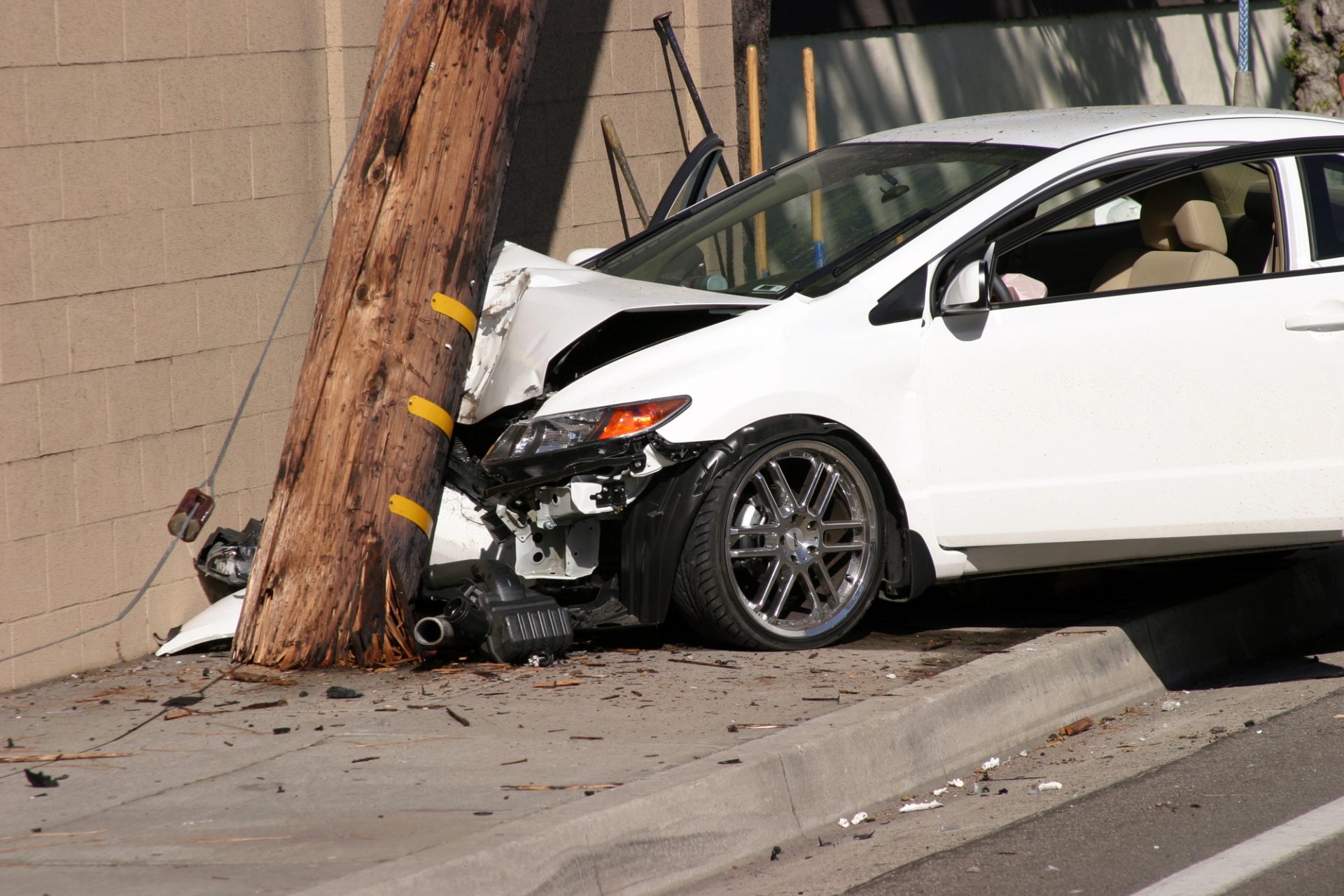Accidents that involve driving while intoxicated (DWI) drivers are preventable, but they continue to remain the cause of serious injuries. While there is no dearth of public awareness campaigns, there are people who choose to put the lives of others (and their own) at risk by driving when impaired. If you or someone you know is the victim of a DWI accident in New York, remember that you have the right to seek legal recourse, and getting in touch with a personal injury attorney is the best way forward.
DWI Accidents in Numbers
If you look at the numbers that surround DWI accidents, you will realize that they are more common than you might think. According to data shared by the New York State Police, more than 17,000 people across the U.S. lose their lives in alcohol-impaired driving accidents each year. That’s 310 people every week, or one person every 30 minutes.
When it comes to injuries, drunk driving causes one every two minutes. In addition, alcohol plays a role in more than 30% of accidents that result in fatalities.
Understanding DWI and DWAI in New York
While many people are familiar with New York drunk driving laws, you should know that the state has two distinct charges: driving while intoxicated (DWI) and driving while ability impaired (DWAI). A further sub-classification also covers drugs.
Driving While Intoxicated (DWI)
This is the more severe of the two charges. In New York, drivers can be charged with DWI if their blood alcohol content (BAC) is 0.08% or higher. The threshold is lower for commercial drivers, at 0.04%. Even if the BAC is below 0.08%, it is possible to charge someone with DWI if there is other evidence that shows the driver is in an “intoxicated condition” and unable to operate a vehicle safely. DWI is a criminal offense, and a misdemeanor typically applies to first-time offenders.
Driving While Ability Impaired (DWAI)
This charge applies when alcohol impairs a driver’s ability to operate a vehicle, but the BAC is between 0.05% and 0.07%. It’s important to note that DWAI by alcohol is a traffic infraction for a first conviction, and not a criminal offense. However, repeated DWAI offenses can escalate to a misdemeanor.
New York also has charges for DWAI by drugs and DWAI by a combination of alcohol and drugs, both of which it treats more seriously than just DWAI, often as misdemeanors, with penalties closer to those of DWI.
What to Do Immediately After a DWI Accident in New York
If you meet with a DWI crash in New York, and are able to, start by ensuring your safety and that of other passengers.
Call the Police
If you’re wondering how to report a drunk driving accident in NYC, all you need to do is call 911. You need to tell the dispatcher your exact location, that you’ve been in an accident, and that you suspect the other driver is intoxicated.
When the police arrive at the scene, make sure you cooperate and provide a factual account of the events. Do not admit fault or speculate about the cause of the accident. Before you leave the scene, ask for the report number so you may get a copy of the police report later.
Gather Evidence and Collect Information
While at the scene of the accident, take photos and videos of the vehicles, including damage, skid marks, and their final positions, as well as of your injuries. Get the at-fault driver’s information that includes his/her/their name, address, and auto insurance details. If there are any witnesses, get their contact details, too.
Get Medical Help
You should seek medical attention as quickly as possible. While this ensures that a healthcare professional examines you, identifies your injuries, and begins treatment, you also get documentary evidence that highlights the severity of your injuries.
Notify Your Insurance Company
In New York, you are generally required to report an automobile accident to your insurance company, even if the other driver is at fault. Your personal injury protection (PIP) policy will typically cover your initial medical expenses and lost wages up to a certain limit, regardless of fault. Timely reporting is crucial.
Contact an Attorney
If you’re injured by a drunk driver in NY, getting legal advice as quickly as possible is a good idea. This way, you know where your case stands, and your attorney can also communicate with the at-fault driver’s insurance company on your behalf.
Should I Talk to the at-fault DWI Driver’s Insurance Company?
You are under no legal obligation to talk to the at-fault driver’s insurance company. In fact, it’s better that you don’t speak to the other driver’s insurance company on your own, and get your attorney to do so instead. This is because insurance companies try to minimize their payouts, and they might end up using what you say to them against you.

Steps for Filing a Personal Injury Claim Against a DWI Driver
Accident cases that involve DWI or DWAI drivers can be complicated, which is why you should consider hiring an attorney to file your claim. This is how the process typically unfolds.
- Assess your case. This involves determining the full extent of your damages, including medical bills, lost wages, pain and suffering, and future medical needs.
- Navigating the “serious injury” threshold. To pursue a personal injury lawsuit against an at-fault driver for non-economic damages like pain and suffering, your injuries must meet the “serious injury” threshold as defined by law. Your attorney can help prove your injuries meet this standard.
- Investigating and gathering evidence. Beyond what you collect at the scene, your attorney can conduct a more in-depth investigation, including obtaining police reports, medical records, and expert witness testimonies.
- Identify all liable parties. While a DWI driver is primarily liable, it might also be possible to hold other parties responsible under New York’s “Dram Shop” law. This can include establishments (bars and restaurants) or social hosts who serve alcohol to a visibly intoxicated person or a minor who then causes an accident.
- Handle communication and negotiation. Your attorney will deal with insurance companies on your behalf, protecting you from tactics aimed at minimizing payouts. He/she/they will submit a formal demand letter outlining your claim and negotiate for a fair settlement.
- File a lawsuit (if necessary). If all the parties involved fail to reach a fair settlement, your attorney will file a lawsuit and represent you in court.
.
What if the Drunk Driver Who Hit Me Is Uninsured?
New York is a no-fault state, which means your auto insurance policy’s coverage is the first line of defense for your medical expenses and lost wages, regardless of who is at fault or whether the at-fault driver has auto insurance.
In addition, New York requires all drivers to carry uninsured motorist (UM) coverage. The minimum UM bodily injury limits in the state are:
- $25,000 per person.
- $50,000 per accident.
- In the event of death, the minimums are $50,000 per person and $100,000 per accident.
Statute Of Limitations
New York’s statute of limitations for drunk driving accident victims stands at three years. However, there are exceptions.
- Claims against government entities. If the at-fault party is a government entity, you typically get 90 days to file a claim, followed by one year and 90 days to file a lawsuit.
- Tolling. It is possible to extend the statute of limitations in cases involving minors or individuals with mental health conditions. This is also the case if a defendant leaves New York after an accident and prior to the filing of the lawsuit.
Seeking Compensation
Compensation for drunk driving accidents in New York can come in different forms, and they cover economic, non-economic, and in some cases, punitive damages.
Economic Damages
These are quantifiable financial losses that can be directly calculated and proven with documentation like bills and pay stubs. They include:
- Medical expenses.
- Lost wages.
- Lost benefits.
- Loss of earning capacity.
- Property damage.
Non-Economic Damages
These are intangible losses that don’t have a direct monetary value but impact a victim’s quality of life significantly. They are more subjective to calculate, but are just as real and important. In New York, you need to meet the serious injury threshold to claim non-economic damages. These include:
- Pain and suffering.
- Emotional distress.
- Loss of enjoyment of life.
- Loss of consortium.
- Scarring and disfigurement.
- Disability or permanent impairment.
Punitive Damages
Unlike economic and non-economic damages that aim to compensate the victim, the aim of awarding punitive damages is to punish the at-fault party for particularly egregious, reckless, or malicious conduct and to deter similar behavior in the future.
Cases involving DWI drivers are among the few personal injury scenarios where courts may award punitive damages. This is because the law considers impaired driving a willful disregard for the safety of others, wherein drivers demonstrate a high degree of recklessness.
The Intersection of Criminal and Civil Cases
When DWI drivers cause accidents, they are not only breaking civil laws (which lead to your personal injury claim) but criminal laws, too. This means they will face criminal prosecution by the State of New York.
In many cases, a criminal conviction for DWI can establish “negligence per se” in your civil case. This legal doctrine means that if a person violates a statute (like DWI laws) and the violation leads to injury, then their negligence is presumed.
This significantly streamlines the process of proving fault in your civil claim, allowing you and your attorney to focus on the extent of your damages. Besides, your attorney can access evidence gathered by the police during the criminal investigation, such as police reports, toxicology reports (BAC results), witness statements, and dashcam footage to build a strong case.
Conclusion
DWI accidents in New York are not uncommon, and having to deal with the aftermath can be daunting, especially if you suffer from serious injuries. While recuperating can be a long-drawn affair, what helps is that the law paves the way for you to receive the compensation you deserve. However, since insurance companies often try to minimize their liability, it’s best that you hire an experienced personal injury attorney to do the heavy lifting for you. Then, you may focus on recovery.

